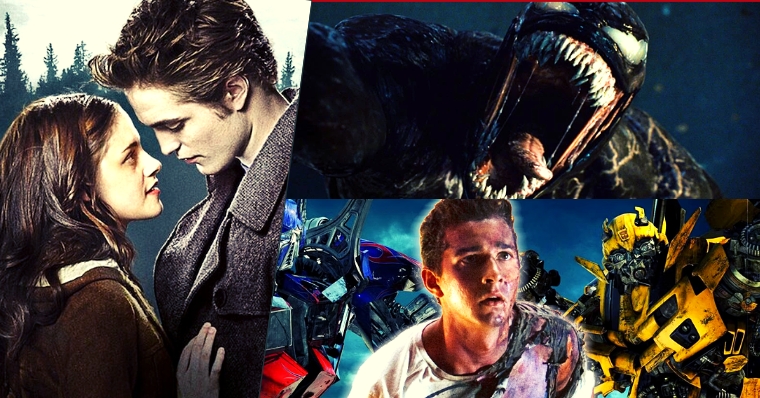Pop culture sometimes feels like an eternal tug-of-war between critics and general audiences. You've got critics on one side of the ring—those intellectual gladiators armed with an arsenal of film theory and nuanced interpretations. They're on the hunt for cinematic achievements that push boundaries and offer deep insights into the human condition. On the other side? Well, there's the rest of us, more often than not seeking a good time at the movies—a killer action sequence, perhaps, or maybe a rom-com that doesn't require a Ph.D. in literature to appreciate. You see, this ongoing struggle often gives rise to some polarizing opinions. Critics may lambast a film for lacking depth or nuance, while audiences shower the same title with love and popcorn butter. To put it another way, what critics may see as a "miss," audiences often consider a "hit." It's a fascinating dialectic, really, one that has no definitive winner but surely makes for some good debate. So, in the interest of adding a little spice to this discourse, we've scoured the annals of Rotten Tomatoes to bring you a list of 10 films that critics virtually crucified but are nearly universally adored by the average viewer.
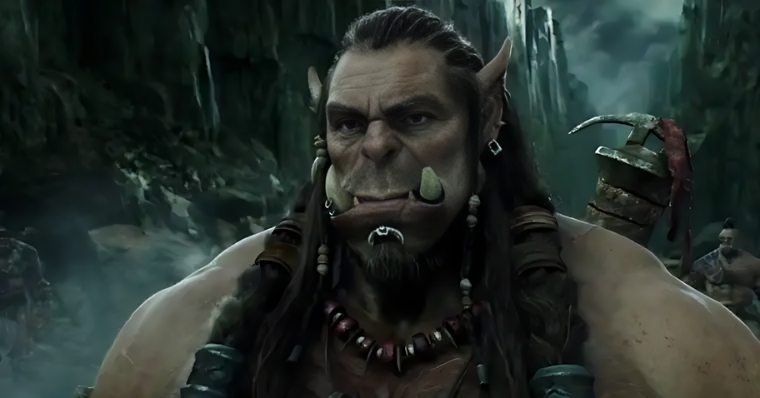
Warcraft (2016)
Tomatometer: 29% Audience Score: 76% Stellar special effects, a charismatic cast, and a franchise with an established gaming pedigree. Sounds like a foolproof recipe for success, right? Well, according to critics, not only could "Warcraft" fail, but it also did spectacularly. The film hobbled to a meager 29% approval rating among critics, who by and large felt that the striking visuals and lore-rich narrative of the gaming universe were squandered in a cinematic endeavor that lacked artistic merit. However, audiences passionately disagreed, endorsing it as a blockbuster that lives up to its hype, reflected by a considerably higher approval rating of 76%. It's almost like we're looking at two different movies here. Critics saw a chaotic tapestry of growling orcs and complicated lore, while game fans saw a faithful rendition of a universe they'd come to love. Some of the top critics didn't mince words: terms like "major disappointment" and "baffling movie" came up frequently. Yet, scroll down to audience reviews, and you'll see people raving about the film's adherence to the original games and urging for a sequel. What the critics disparaged as an indecipherable jumble of CGI battles and one-dimensional characters, fans embraced as a nuanced narrative that did justice to its source material. It seems like a classic case of whether you're a member of the 'in-crowd' who gets all the nuanced references and storytelling quirks or an 'outsider' who's left scratching their head. And don't get me started on the special effects. For some, the CGI was a distracting mess, while for others, it was a visual feast that fully transported them to the world of Azeroth. Interestingly, the tension between critics and fans also extends to the film's actors. While critics found fault in what they described as cardboard performances, fans lauded the ensemble for their emotional range and faithfulness to the franchise's iconic characters. Travis Fimmel, Ben Schnetzer, and the voice talents of Toby Kebbell among others received particular praise from the audience sector. It's as if each faction was watching a completely different film. The disparate reviews serve as an intriguing case study of how our expectations and prior experiences can profoundly shape our perception of art. In summary, the jury is decidedly split on "Warcraft." Whether you think it was a masterful adaptation or a box office bomb depends largely on your vantage point. What is indisputable is the divisive nature of this movie. It's a polarizing cinematic experience that leaves no one neutral. If nothing else, "Warcraft" sparked lively debates and impassioned defenses, ensuring its place as one of the most hotly contested films of its time. Whether you stand with the critics or the fans, one thing is for sure: "Warcraft" succeeded in evoking strong reactions, and in the realm of entertainment, isn't that a victory in its own right?
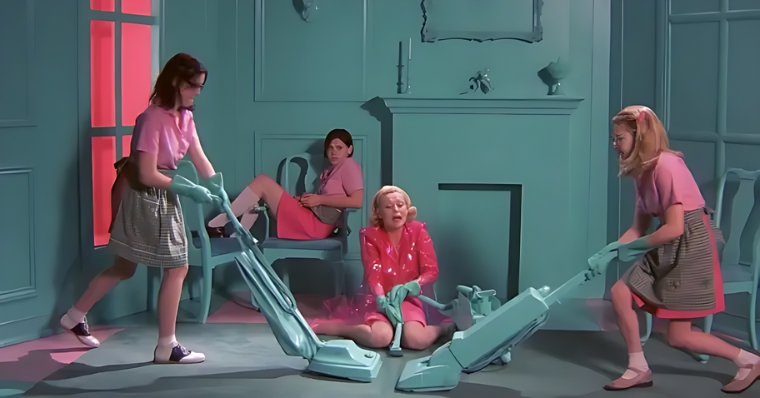
But I'm a Cheerleader (1999)
Tomatometer: 42 % Audience Score: 75% In the annals of cinema history, few films spark as much impassioned division between critics and audiences as the 1999 satirical romantic comedy "But I'm a Cheerleader." Critics found the film lacking in depth, dismissing it as a shallow attempt at social commentary. They collectively yawned, awarding it a rather uninspiring 42% on Rotten Tomatoes. However, the audience—well, they painted quite a different picture, reveling in its cult status and giving it a hearty thumbs-up with a 75% approval rating. Top critics—those gatekeepers of cinematic taste—labeled the film as "smug," "heavy-handed," and "broadly conceived." They wanted more investigative depth, perhaps a darker, documentary-style look into the horrific reality of conversion therapy camps. They took issue with its vibrant color palette and campy, good-natured tone, accusing it of trivializing a deeply traumatic experience. A few even lamented the film's lost potential, feeling that it could've hit harder, dug deeper, and stirred the pot more potently. And yet, it's worth noting that the audience found a certain je ne sais quoi in the film that most critics seemed to miss. To them, this was more than just a frothy, one-off comedy. Viewers praised its ahead-of-its-time narrative and adored its vibrant colors and bold aesthetic choices. They found a certain resonance in its themes of identity, self-acceptance, and the ludicrousness of trying to fit people into tidy, binary boxes. Teens and adults alike found it relatable, echoing the sentiment that the movie captured what it's like for some in the LGBTQIA+ community and how ridiculous societal norms can be. Notably, several viewers felt the film was instrumental in their own journeys toward understanding their sexual orientations. Perhaps the real brilliance of "But I'm a Cheerleader" lies in its deceptive simplicity. Despite its cotton-candy exterior, it never lets its audience forget the trauma that the characters are experiencing. It uses satire like a velvet glove, easing viewers into a difficult subject matter. Through its colorful lens, the film mocks societal norms and turns them inside out for thorough examination. Sure, it might not be Oscar material, and it may not even be the kind of film that stays with you for years to come. Yet, it's indisputable that it has etched itself into the annals of cult classic films. Whether you deem it a thinly veiled satire that could have bitten harder or a necessary cultural artifact that still resonates today, "But I'm a Cheerleader" has secured its place in the ever-evolving dialogue around LGBTQIA+ representation in media. So, in the end, who gets the last laugh? The critics, with their high-brow sensibilities? Or the audience, who found unexpected depth and humanity in this satirical romp? Well, one thing's for sure: "But I'm a Cheerleader" still serves as a quintessential example of how vastly divided opinions can merge into an unanticipated cultural touchstone.
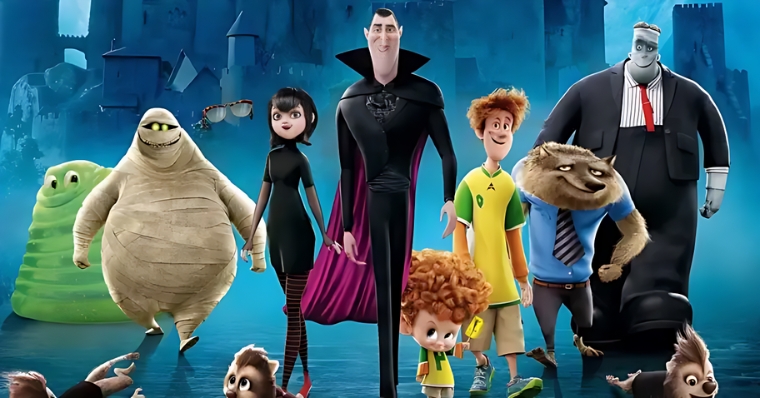
Hotel Transylvania (2012)
Tomatometer: 45% Audience Score: 72% "Hotel Transylvania," the 2012 animated film starring the voice talents of Adam Sandler, Andy Samberg, and Selena Gomez, quickly emerged as a go-to favorite for Halloween-themed movie nights. With classic characters like Count Dracula and Frankenstein given fresh and funny updates, the film scored a respectable 72% approval rating from the general audience. However, the critics were far less enchanted, granting it a lukewarm 45% on the approval meter. Many reviewers noted that while the movie might keep the kiddos entertained, it was "too loud and poorly written for older audiences." The film, directed by Genndy Tartakovsky, had a six-year production timeline and involved multiple directors and writers. The resulting mix left little room for Tartakovsky's own signature style. Critics have pointed out the film's reliance on Halloween marketing hype rather than genuinely fresh or funny content. Adam Sandler's character has been called out for leaning a bit too hard into the syrupy, sweet tones, and the comparison to the far wittier Pixar's "Monsters, Inc." was inevitable. While "Hotel Transylvania" offers rapid-fire gags and an energetic pace, it lacks the emotional depth we've come to expect from animation giants like Pixar. Some reviewers claim it fails to rise above mediocrity despite its high-energy slapstick comedy and the renowned Tartakovsky at the helm. Still, it includes a handful of laughs and is a family-friendly movie for all ages, even if it contains mostly lewd jokes targeted at adults. Yet, despite its critical reception, the audience has had more varied opinions. Some view it as a hilarious, family-friendly romp—perfect for Halloween or any occasion that calls for lighthearted fun. Adam Sandler's take on Dracula is particularly praised for being deeply committed to the role, transforming Dracula into a character that sounds entirely different from the usual Sandler persona. On the flip side, some viewers felt the movie was too predictable and relied on well-worn storylines. Interestingly, even with its straightforward narrative, the movie has spawned successful sequels, proving that it certainly found its niche, if not universal acclaim. In essence, "Hotel Transylvania" is a pop culture enigma—simultaneously adored and scorned. It's a movie that divides audiences almost as much as it unites families around the TV for a good laugh. If you're looking for a film with intricate plotlines and complex characters, this might not be your cup of tea. But if you're in the mood for a light, entertaining experience filled with familiar faces from the monster realm, then a stay at "Hotel Transylvania" might just be what you need—no garlic or wooden stakes required.
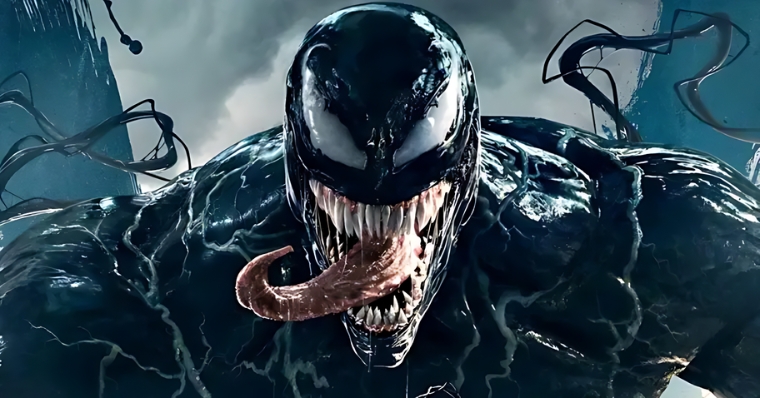
Venom (2018)
Tomatometer: 30% Audience Score: 80% In the realm of superhero flicks, 2018's "Venom" starring Tom Hardy as Eddie Brock, has been nothing short of divisive. As the numbers rolled in, the film's public approval rating settled at a surprising 80%. Fans found something magnetic about Hardy's portrayal of the anti-hero and his symbiotic relationship with the alien entity, Venom. However, the tale takes a twist when you consult critics—because they were not thrilled. Their consensus landed at a meager 30% approval. Critics lambasted the film as chaotic, noisy, and lacking a meaningful connection to its Spider-Man roots. You could almost hear them collectively muttering, "Could this film benefit from a dash of Peter Parker? Absolutely." Top critics offered a broad array of viewpoints, with some suggesting that the movie was neither "so bad it's good" nor "actually good." Others found it entertaining but disjointed as if several different movies were fighting for screen time. Whether it was the film's confusing tonality or its baffling balance between horror and humor, there was a shared sentiment: "Venom" had yet to find its footing. But let's not forget the audience's voice. Some saw the film as a delightful departure from the often-formulaic superhero genre. They lauded Tom Hardy's performance and found the dynamic between Venom and Eddie Brock captivating enough to carry the film on its back. However, there were detractors who felt that the absence of Spider-Man in a Venom origin story was nothing short of a narrative misstep. Some also pointed out that the CGI was a mixed bag, teetering on the edge of impressive and cringeworthy. So, what do we make of this schism? Is "Venom" a cinematic masterpiece hiding in the shadow of critical disdain, or is it a clunky, ill-conceived endeavor that got lucky with an audience more forgiving of its flaws? It's a complex tapestry of public opinion, and it raises a larger question about the gap between critics and general viewers. Critics lean into dissecting a film's construction, its coherence, and how well it honors its source material. But the average moviegoer? Sometimes, they just want to eat popcorn and watch Tom Hardy talk to an alien parasite for two hours—and there's nothing wrong with that. At the end of the day, "Venom" remains a tantalizing enigma. It is a testament to the ever-challenging balancing act films must perform between artistry and entertainment. As the credits roll, the audience is left with a decision—to be swayed by the critics or to embrace the chaotic beauty of Venom for what it is.

Transformers (2007)
Tomatometer: 57% Audience Score: 85% Regarding blockbusters that perhaps haven't gotten the fair shake they deserve, "Transformers" from 2007 holds a special place in the pop culture zeitgeist. Now, here's the tea: At the time of its release, critics didn't quite know what to make of it. They gave it a somewhat lukewarm 57% on Rotten Tomatoes, citing characters that seemed as hollow as a cardboard standee and special effects that were as subtle as a wrecking ball. On the flip side, audiences dug it—like, really dug it. Optimus Prime's cinematic escapade struck a chord with fans, garnering an 85% audience approval rating. If you needed any more proof that critics don't solely dictate a movie's enjoyment factor, here it is, laid out in numbers that don't lie. It's important to note, though, that the movie was a dichotomy of experiences. Critics took aim at Michael Bay's over-the-top directing style and the film's generous application of CGI that seemed like it was going for the gold in the Olympic sport of special effects. They felt the film needed less flair and more substance, arguing that the visual pyrotechnics were a smokescreen that clouded the viewer's ability to make heads or tails of the narrative. Basically, they thought the action sequences were as intricate as a maze, with no real way out. The general audience, however, had a different take. They found the film to be an adrenaline-pumping joyride that paid homage to a childhood favorite. Yes, the movie might have been a cacophony of roars, blasts, and clanks, but to them, it was a symphony—a kind of harmonious chaos that brought the beloved toys to life in a grand way. With its colossal robots and stunning visuals, the film fed into our innate desire for escapist, popcorn-flick entertainment. A point of interest is Shia LaBeouf's role, a performance that balanced shock and awe in a way uniquely suited to this kind of film. It added an element of human relatability to a story that was essentially about gigantic mechanical beings waging an intergalactic war. As for Megan Fox, she gave a credible performance, too, fitting well into the universe Bay envisioned. In the end, "Transformers" is a lot of things—extravagant, exuberant, and, yes, arguably excessive—but isn't that what a blockbuster is meant to be? So, who really has the final say on its merit? Critics might see it as a nearly three-hour-long commercial for Hasbro toys. Yet, for a lot of folks, it's a thrilling trip down memory lane, where nostalgia meets high-octane action to create a visual spectacle. Either way, the movie became a cultural moment, and whether you loved it or loathed it, it's a spectacle that can't be easily forgotten.

Twilight (2008)
Tomatometer: 49% Audience Score: 72% If Edward Cullen were to describe the essence of "Twilight," he might very well say, "This is the skin of a blockbuster, Bella." A cinematic manifestation of Stephenie Meyer's cult-classic novel, the film was shot to stardom primarily due to its extraordinary loyalty to the source material. Let's not forget the palpable on-screen chemistry between Robert Pattinson and Kristen Stewart. But here's the fascinating dichotomy: while the audience gave it a whopping 72% approval rating, critics weren't as kind, with the movie stagnating at a measly 49%. Critics saw it as a piece of middling cinema, providing sustenance only for the fanbase while leaving everyone else who hadn't navigated through the book series rather, well, thirsty. From the heavyweights of film criticism, the reviews were a mixed bag. Some saw director Catherine Hardwicke's treatment of Meyer's bestseller as earnest yet moody—perfect for tapping into our inner 14-year-old. Others thought it was an outright goofy take on the vampire genre, tailored for audiences with a taste for abstinence. "A sometimes girlie swirl of obsession," one critic noted, underscoring its appeal to a certain teenage demographic. Yet, there were those who blasted it as a melodramatic venture with a narrative as elusive as Edward Cullen's appeal. The consensus? Critics were polarized, to say the least. Some found it "sometimes sensitive and often silly," while others considered it a chick flick that actually had some bite—no pun intended. However, the uniform criticism revolved around Hardwicke's directing style, which many felt took itself too seriously, resulting in a film that failed to fully exploit its own campiness. Then, there's the audience—real people who don't write reviews for a living but live to write their feelings. And let me tell you, the sentiments were wildly diverse. Some saw "Twilight" as a guilty pleasure, replete with cringe-worthy moments, but loved it regardless for its iconic characters and their equally memorable outfits (Bella's wardrobe, anyone?). Others thought it was a masterpiece that transcended its apparent flaws, a cinematic journey that reflected human nature's deeper complexities and imperfections. However, let's not disregard the sizable faction that laughed through the melodrama, the awkward dialogues, and Edward's penchant for stalking. For them, it was so bad, it was good, and thus worthy of a watch—if only to serve as a PSA on how not to have a relationship. As much as critics would like you to believe otherwise, the numbers don't lie. Seventeen million copies of the book series sold, and a fanbase that keeps the "Twilight" torch alive long after its 2008 release, testifies to its resonating power. In an era packed with CGI-overdosed blockbusters, "Twilight" stood out as a character-driven narrative oozing with teenage angst and eternal love—or eternal life, if you prefer it that way. So, despite the critical divide, "Twilight" remains a cornerstone of popular culture. It's not just a film; it's a phenomenon. Whether you're Team Edward, Team Jacob, or hell, even Team Bella, this flick has carved out a space in the collective psyche. For better or worse, it has us talking, debating, and, most importantly, feeling—a testament to its enduring allure.
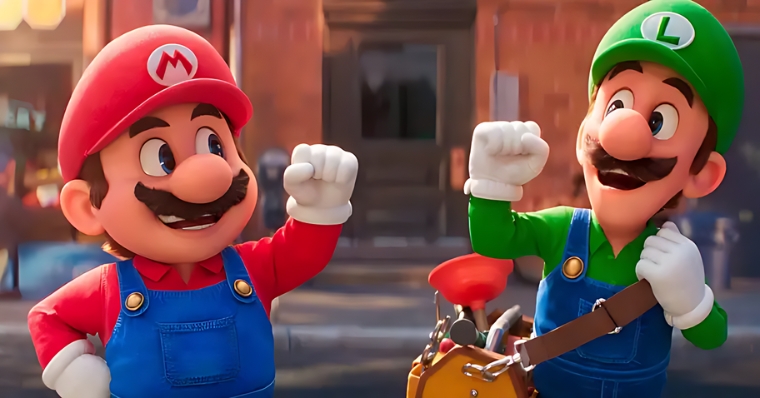
The Super Mario Bros. Movie (2023)
Tomatometer: 59% Audience Score: 95% Let's dive into the cinematic phenomenon of the "Super Mario Bros. Movie" of 2023. A veritable cash cow, this movie catapulted itself into the hearts of franchise enthusiasts, animation fans, and casual viewers looking for a solid night of entertainment. By the end of its run, the film scored a resounding 95% audience approval rating, making it a bona fide darling for the masses. But hold on—let's pump the brakes for a second. Critics were noticeably less enamored, with the film garnering a tepid 59% approval rate on their end. According to the professionals, the "Super Mario Bros. Movie" is vibrant but "underthought." Many reviews summed it up as a visually striking yet essentially aimless cash grab. To give you a sense of what the critics are saying, their reviews range from calling the movie a "frantic Easter egg hunt" to describing it as "hollow as a trailer." One critique points out that the film's beauty is skin-deep, labeling the characters as "pixels without much in the way of personality." Another review remarks that the film feels like a never-ending advertisement, making you want to revisit old Mario games but not compelling you to hit play on the movie again. Overall, many reviewers lamented that the iconic duo of Mario and Luigi deserved a storyline that was more than just "competent." Conversely, the audience couldn't get enough. Feedback from viewers ranged from finding the animation absolutely stunning to praising its fast-paced nature and teasing the potential for sequels. Most noted that the plot wasn't groundbreaking but still labeled it as "fun." A large section of the audience also appreciated the homage the movie paid to the classic Mario games. In their eyes, the film was a nostalgic roller coaster well worth the ticket price. On the one hand, the film masters the art of appealing to its core audience—gamers and young viewers—with incredible artistry and a soundtrack that marries the '80s hits with iconic game scores. On the other hand, the movie is critiqued for lacking an engaging story and for feeling more like a love letter to the video games than a standalone cinematic experience. So, what's the final word? The "Super Mario Bros. Movie" is a divisive hit. It has triumphed in box office numbers and audience sentiment, but it couldn't quite level up to unanimous critical acclaim. Depending on your perspective—whether you're a nostalgic gamer, a parent looking for family-friendly entertainment, or a discerning film critic, the film either knocks it out of the park or falls tantalizingly short of its potential.
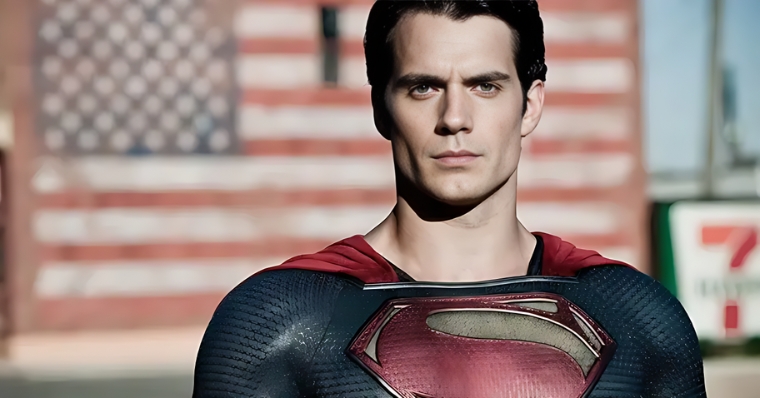
Man of Steel (2013)
Tomatometer: 56% Audience Score: 75% Zack Snyder has earned a special place in the hearts of moviegoers for delivering high-octane, emotionally charged blockbusters. However, what makes him a darling for many also turns him into a subject of controversy for others. Take "Man of Steel," for instance. The film sits at a modest 56% approval rating on Rotten Tomatoes, with critics labeling it as "generic." Contradictorily, it has garnered a 75% audience approval rate. The film, starring Henry Cavill as Superman, became a sort of cultural Rorschach test—what you see in it might just say more about you than it does about the movie itself. A tapestry of opinions has been woven around the film, encompassing everything from sincere admiration for its fresh take on Clark Kent to criticisms that it's a monotonous, anachronistic fiasco. Some critics see it as a tribute that finally modernizes the Man of Steel for today's audience, while others argue that the film's solemn tone makes it lose the charm of the original comics. Various reviews cast Zack Snyder as either a visionary for modernizing a timeworn hero or a filmmaker who's lost touch with what made Superman, well, super. Public opinion is equally divided but leans towards approval. While some viewers criticize the movie's CGI-heavy sequences and apparent destruction without cause, others praise its unique, more realistic approach to the Superman story. Fans commend the film's dynamic introduction to a Superman who is still grappling with his extraordinary powers and complex personal history. Snyder's distinct visual style has its defenders, even if some think he sometimes goes overboard. Although the film's screenplay has its share of flaws, including plot conveniences that raise eyebrows, these critiques often take a backseat to the film's triumphs—its memorable, spine-tingling score, compelling performances, and action-packed sequences that have set a new standard for the genre. So, what we end up with is a movie that exists in a state of cinematic limbo. It's neither universally loved nor universally panned; instead, it hovers somewhere in between, leaving audiences and critics fiercely divided. The casting of Henry Cavill as Superman seems to be a unanimous win, and yet, there are those who feel that he lacks the ineffable qualities that make Superman a global icon. Even the film's mood, deeply influenced by the dark undertones of producer Christopher Nolan, splits opinions—some appreciate the serious approach as a necessary course correction. In contrast, others miss the levity that has long been part of Superman's DNA. Perhaps the true strength of "Man of Steel" lies in its ability to provoke these conversations, to leave us questioning the essence of what makes a superhero in the 21st century. The film emerges as a sprawling, ambitious endeavor that tries to redefine an iconic character for a new generation while paying due respect to the foundations laid before it. Whether or not it succeeds depends largely on who you ask, making "Man of Steel" an intriguing, if not universally acclaimed, addition to the superhero canon.
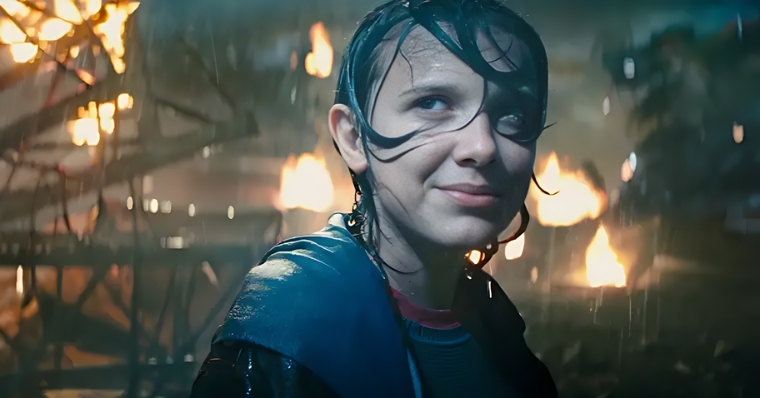
Godzilla: King of the Monsters (2019)
Tomatometer: 83% Audience Score: 42% Featuring a stellar cast that includes Millie Bobby Brown and Vera Farmiga, "Godzilla: King of the Monsters" serves up yet another thrilling chapter in the saga of the towering beast known for wreaking havoc across major cities. If your cinematic appetite craves a spectacle devoid of lofty ambitions but overflowing with skyscraper-leveling destruction, you've hit the jackpot with this one. The audience seemed to revel in the chaos, handing the movie an impressive 83% approval rating. However, brace yourself for potential disappointment if you're hunting for a narrative imbued with deep emotional layers and intriguing character arcs. Among critics, the film mustered a rather lackluster 42% approval rating. The general consensus? A dazzling buffet of special effects do not a compelling story make. As for top critic reviews, the verdicts are a smorgasbord of opinions. While some say the film is visually splendid but distracts with its slickness, others argue it's got enough to tantalize kaiju aficionados into coming back for seconds. Some critique it for wasting too much runtime on a convoluted plot and too little on the monster face-offs we all secretly crave. Yet, others think director Mike Dougherty struck a better balance this time, focusing more on the colossal creatures and less on human drama, making the sequel far more entertaining than its 2014 predecessor. Audience reviews are equally divided but lean more on the positive. Directed by Michael Dougherty, "Godzilla: King of the Monsters" emerges as the sequel to "Godzilla" (2014) and expands the Monsterverse into new and exciting dimensions. This cinematic rollercoaster takes us into a world populated by gigantic beings known as Titans, including iconic figures like Godzilla, Mothra, Rodan, and the fearsome King Ghidorah. These behemoths become embroiled in an apocalyptic showdown that not only holds the fate of their kind but also poses a cataclysmic threat to Earth itself. The plot integrates elements of action, suspense, and adventure, achieving a delicate balance between heart-pounding monster battles and the unfolding human drama set against this backdrop of chaos. The complexity of the characters is explored across multiple narrative threads: Monarch's team of scientists and military personnel, the eco-terrorists under Alan Jonah, and the central family unit of Mark, Emma, and Madison. One of the film's triumphs is how it honors the Godzilla franchise's storied history while incorporating elements of traditional Japanese mythology, making it relatable to a global audience. The visual aesthetics and stunning special effects serve to immerse the viewer into a realm of both wonder and terror. But let's not forget the pulse-pounding music score by Bear McCreary that turns each scene into an epic, emotional experience. Whether it's the classic themes or fresh compositions, McCreary's music is the film's soul, heightening the emotional stakes and supplementing the narrative. While the movie excels in its display of monumental battles and top-notch special effects, it also delves into deeper themes, like the ecological balance of our planet and humankind's place among these godlike creatures. However, the film is not without its flaws. Despite strong performances by the cast, the human characters sometimes seem to take a backseat, lacking the depth and development bestowed upon their larger-than-life co-stars. To wrap it up, "Godzilla: King of the Monsters" is an exhilarating cinematic experience that captivates existing fans and is likely to garner new ones. With its intoxicating blend of jaw-dropping action, state-of-the-art visuals, a stirring soundtrack, and an engaging storyline, this film stands as a noteworthy chapter in the Godzilla franchise. It's a cinematic thrill ride that challenges us to ponder our role in Earth's delicate balance while leaving us eagerly awaiting the next Monsterverse installment. For the fans, it's a celebration. One says it's a remarkable homage to original kaiju films with cutting-edge CGI, while another opines that you should simply ignore any qualms about the plot; the sheer spectacle of monster-on-monster battles is worth the price of admission . "Godzilla: King of the Monsters" delivers on the promise of what a kaiju movie should be: larger-than-life, awe-inspiring, and just a downright fun time.
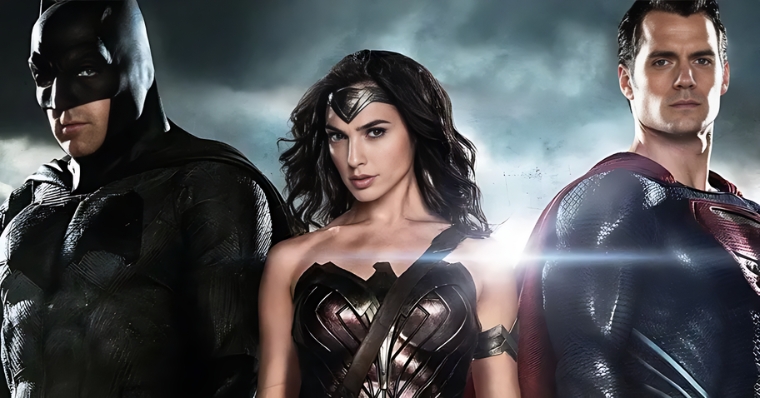
Batman v Superman: Dawn of Justice (2016)
Tomatometer: 29% Audience Score: 63% When "Batman v Superman: Dawn of Justice" hit the screens in 2016, it sent shockwaves through the fan community and left critics scratching their heads. This was no vanilla superhero flick; it was a Molotov cocktail of grit, politics, and brooding characters, and people either loved it or loved to hate it. The polarization was apparent, especially if you took a glance at Rotten Tomatoes. Critics weren't too thrilled, handing it a lackluster 29% approval rating, but audiences were more forgiving, nudging it up to a solid 63%. The film had its share of advocates among top critics, too. Some saw it as a seminal film in the superhero genre, an audacious venture with high-octane action and transformative performances. "Batman v Superman is a great film and a spectacle that marks a new era for superheroes," one review noted. Others, however, thought the narrative lost itself in its own ambition, critiquing its nearly monochrome palette and its tonal depth—or the lack thereof—as an exhausting experience. Audience reviews ran the gamut. Some heralded the film as a cinematic masterpiece, praising its ambitious story arcs, its treatment of iconic characters, and its courage in eschewing the traditional superhero movie formula. For them, the film not only looked good but felt monumental, pulling no punches in the philosophical or existential departments. Others weren't so dazzled. They criticized the film's lack of emotional depth, overly elaborate CGI, and clashing tones. Perhaps most tellingly, some fans who initially spurned the film have since revisited it and warmed up to its audacious narrative. They've discovered nuances that were missed or dismissed during their initial viewing. The portrayal of a weathered Batman, intent on challenging the godlike Superman, has been re-evaluated and found to be deeply compelling by many. And let's not overlook Henry Cavill's Superman, a character that bears the weight of the world both metaphorically and literally. Even Lex Luthor, portrayed in a style that deviated from the classic character, drew both ire and fascination. While the character did not sit well with some viewers, who questioned the erratic portrayal, others found it an interesting take, a mirror reflecting our own cultural anxieties and complexities. Still, there were points of near-universal agreement. Ben Affleck's Batman was mostly praised for injecting a fresh yet faithful take on the iconic role. Many audiences and critics alike agreed that the film's fight sequences were a visual tour de force. Yet, even the film's most ardent supporters would concede that perhaps it tried to do too much too soon—like cramming the story arcs of "The Dark Knight Returns" and "The Death of Superman" into a single movie. It was an ambitious undertaking, to say the least, but one that delivered an unapologetically bold spectacle. Ultimately, "Batman v Superman: Dawn of Justice" became an enigma, a film that drew people back for second and third viewings just to decipher its intricate layers. Whether a remarkable achievement or a spectacular miss, the movie undeniably sparked conversations that extended well beyond the initial credits roll. With all its imperfections and bold choices, it's a film that refuses to be forgotten—making it, in its own way, as iconic and divisive as the superheroes it brings to life.











